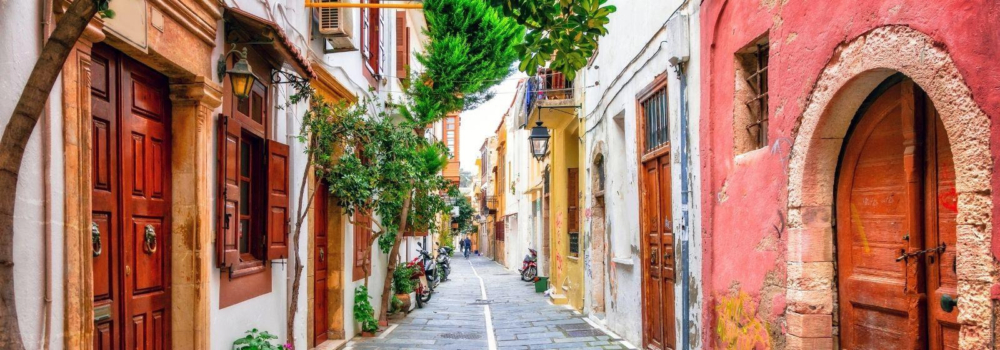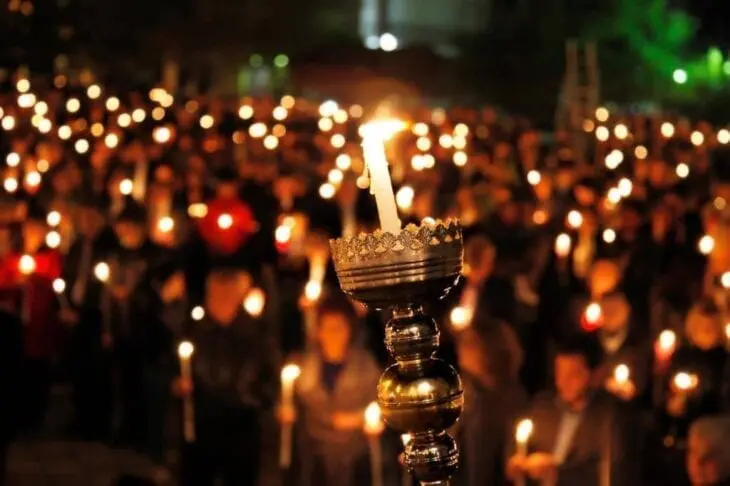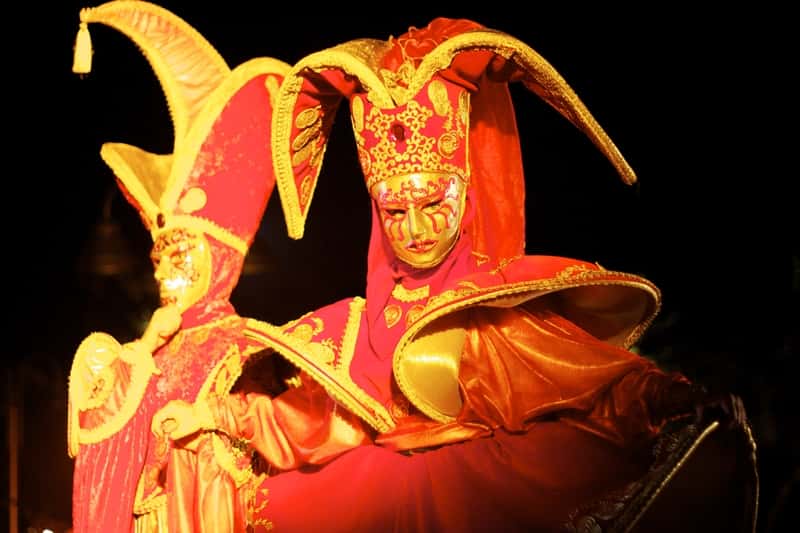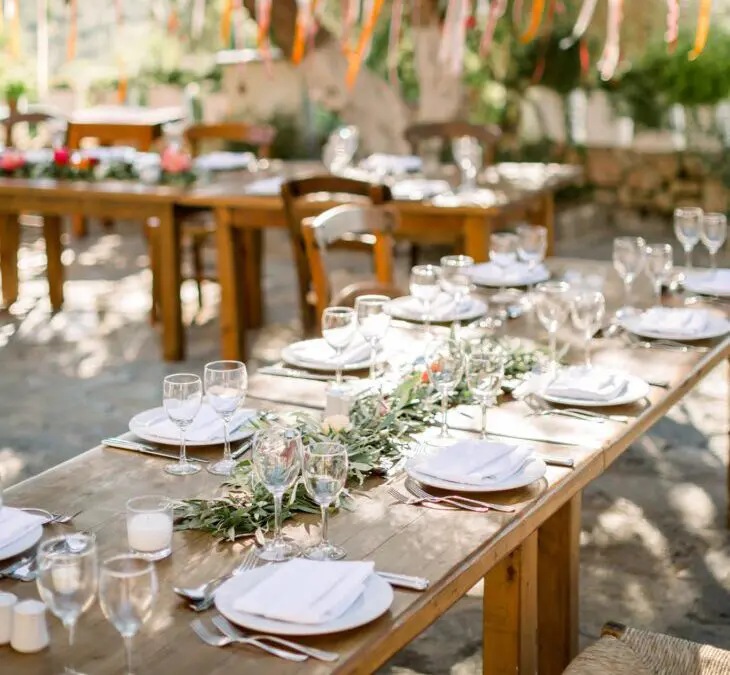News
The festivals and local traditions in Crete: A living heritage

Crete, the largest island in Greece, is a true treasure trove of traditions and celebrations that reflect its rich historical and cultural past. Each village and city boast its unique customs, deeply rooted in local religious and cultural practices. Festivities in Crete are not just occasional events; they are the living expression of the Cretan identity and spirit. From Orthodox Easter to cultural festivals, each celebration provides an opportunity for locals to gather, strengthen community ties, and share their heritage with visitors.
Cretan festivities are often marked by religious rituals, traditional dances, banquets, and competitions. These events not only celebrate important moments of the year but also pass down centuries-old traditions to new generations. Visitors to the island are often amazed by the fervor and joy with which Cretans celebrate their festivals. Whether in large cities or small remote villages, the festive spirit is omnipresent and contagious.
Religious festivals such as Easter and the Feast of the Assumption are among the most important and spectacular. These celebrations, combining solemnity and rejoicing, are key moments of the year when communities come together to pray, sing, dance, and feast together. In parallel, cultural festivals such as the Rethymno Renaissance Festival and the Heraklion Wine Festival highlight the island’s artistic and gastronomic heritage, attracting visitors from around the world.
By exploring these festivals and traditions, one discovers an authentic Crete where the past and present harmoniously blend, offering visitors an unforgettable experience and total immersion in Cretan culture.
Religious Festivals:

Easter is undoubtedly the most significant and celebrated festival in Crete. This Orthodox holiday, marking the resurrection of Christ, is a major event in the religious and social life of Cretans. Preparations begin well before Holy Week with fasting and prayers. Palm Sunday opens the Holy Week with processions and blessings of olive branches. Churches are beautifully decorated, and bells ring regularly to remind the faithful of religious services.
Holy Week is marked by a series of religious ceremonies, culminating on Good Friday with the procession of the Epitaphios, a symbol of Christ’s body, through the streets of towns and villages. The faithful follow the procession singing hymns and holding candles, creating a solemn and reflective atmosphere.
On Saturday night, Cretans gather in churches for the midnight mass. At midnight, the resurrection light is lit from the holy flame brought from Jerusalem and passed from candle to candle among the faithful, symbolizing Christ’s resurrection and the victory of light over darkness. Bells ring joyfully, fireworks explode, and people greet each other with “Christos Anesti” (Christ is risen), followed by “Alithos Anesti” (He is truly risen).
Easter Sunday is a day of feasting and celebration. Families gather to share a traditional meal that includes roasted lamb, red eggs (symbols of resurrection and life), and various local dishes. Children participate in traditional games, and everyone dances and sings until late at night.
The Feast of the Assumption, celebrated on August 15th, is another major religious festival in Crete. It marks the assumption of the Virgin Mary into heaven and is celebrated with particular fervor. Churches are adorned with flowers, and icons of the Virgin are carried in processions through towns and villages.
Celebrations begin on the eve with prayer vigils and special masses. On the day of the Assumption, the faithful attend mass and then participate in community feasts that include dancing, singing, and feasting. Markets and fairs are lively, offering visitors a variety of local products, crafts, and culinary specialties.
These religious festivals are not only moments of prayer and reflection but also opportunities to strengthen community bonds and celebrate together the richness of Cretan tradition and faith.
For more information on villa rentals near celebration venues, visit: https://www.r-lconsultancy.com/en/villa-rentals-in-crete/
Cultural Festivals:

The Rethymno Renaissance Festival is a major annual event celebrated in summer, highlighting the cultural heritage of the Cretan Renaissance. This period, marked by artistic and intellectual fervor, is revived through various performances and activities. During the festival, the old town of Rethymno transforms into a lively stage with theater, music, dance, and visual arts.
The cobbled streets and historic squares serve as backdrops for outdoor theatrical performances, often based on works by great Renaissance playwrights such as Shakespeare and Molière. Concerts featuring classical and traditional Cretan music resonate in iconic locations, creating a unique and immersive atmosphere.
In addition to performances, the festival offers workshops and lectures on various aspects of the Renaissance, allowing visitors to delve deeper into this fascinating era. Art exhibitions and film screenings complement the rich program, making the Renaissance Festival an unmissable cultural event for locals and tourists alike.
The Heraklion Wine Festival, also held in summer, celebrates Crete’s long-standing wine tradition. This island, renowned for its wines since ancient times, showcases its vineyards and producers during this festive event. Visitors can sample a wide variety of local wines, from fresh and aromatic whites to robust and full-bodied reds.
Tasting booths are set up in picturesque locations around the city, allowing participants to savor their wines while enjoying spectacular views of the Aegean Sea. Besides tastings, the festival features vineyard tours, tasting workshops, and lectures on the history and production of Cretan wine.
The Wine Festival is also a celebration of Cretan gastronomy. Visitors can enjoy traditional dishes that perfectly complement the local wines, such as dakos, a salad of tomatoes and cheese on barley bread, or staka, a typical regional buttercream. Live music concerts and traditional dance performances enliven the evenings, making the Wine Festival a complete sensory experience.
These cultural festivals, beyond their festive aspect, play a crucial role in preserving and promoting Cretan culture and traditions. They attract visitors from all over the world, contributing to Crete’s international reputation as a region rich in history and culture.
For more information on creating custom excursions, visit : https://www.r-lconsultancy.com/en/personalised-services-and-private-concierge/
Local traditions:

Weddings in Crete are highly symbolic and festive events deeply rooted in tradition. These ceremonies are often spectacular cultural displays, where every detail has particular significance. Preparations begin well before the wedding day, with the creation of the dowry, gifts, and symbolic objects to be used in the ceremony. The day before the wedding, families gather for a large preparatory celebration, where singing and dancing continue late into the night.
On the wedding day, the bride and groom are separately escorted from their homes to the church by processions. These processions are accompanied by traditional music, played by local musicians using instruments like the lyra and the laouto. The ceremony itself is rich in rituals, including the exchange of crowns, the sharing of wine and bread, and specific blessings.
After the religious ceremony, a grand reception is held, often in a village hall or outdoors under tents. The numerous guests enjoy a feast featuring a variety of traditional dishes, such as roasted lamb, mezedes (small bites), and desserts like kalitsounia, small filled pastries. Dance plays a central role in the celebration, with traditional dances like the syrtos and the pentozali, where guests join the newlyweds in celebrating their union.
Music and dance are at the heart of Cretan culture, and every significant event, whether religious, cultural, or familial, is accompanied by these artistic expressions. The lyra, a small stringed instrument, is emblematic of Cretan music. Often accompanied by the laouto, a type of lute, the lyra produces enchanting melodies that invite dancing.
Cretan dances, such as the syrtos and the pentozali, are characterized by rhythmic and energetic movements. The syrtos, a circle dance, is often performed at weddings and festivals, symbolizing unity and community. The pentozali, more dynamic, is a warrior dance dating back to Crete’s struggles for freedom. Each dance is a manifestation of the island’s history and culture, passed down from generation to generation.
Festivals and Cretan weddings are not complete without these elements of music and dance, which bring joy and cohesion to the communities. They represent not only a form of art but also a means of keeping alive the traditions and values of Crete.
For more information on villa rentals for events and celebrations, visit: https://www.r-lconsultancy.com/en/villa-rentals-in-crete/
The festivals and local traditions in Crete are more than just festive events; they are the beating heart of Cretan culture and identity. These celebrations, whether religious, cultural, or familial, play a crucial role in preserving ancient customs and strengthening community bonds. Religious festivals like Easter and the Assumption offer moments of reflection and shared joy while perpetuating millennia-old rituals. Cultural festivals, such as the Rethymno Renaissance Festival and the Heraklion Wine Festival, highlight the island’s artistic and gastronomic heritage, attracting visitors from around the globe.
Cretan weddings, with their elaborate ceremonies and lively festivities, are living testaments to the richness of local traditions. Music and dance, omnipresent at these events, express the vibrant soul of Crete, passing down stories and values through generations. By participating in these celebrations, visitors can immerse themselves in the very essence of Cretan culture, discovering warm hospitality and contagious joy.
The preservation of these festivals and traditions is essential for maintaining the vibrant and dynamic cultural heritage of Crete. They allow Cretans to reconnect with their history, celebrate their unique identity, and share their culture with the world. For visitors, these events offer a priceless opportunity to explore the depth and diversity of Cretan culture, creating lasting memories and a deeper understanding of this fascinating island.
Thus, the festivals and local traditions in Crete are not just annual events but cornerstones of the island’s cultural identity, celebrated with passion and pride by its inhabitants.
For more information on Diving in Chania: underwater treasures and must-visit dive sites
Also, to learn more about RL Consultancy and our luxury villa rental offers.
Or, to contact us.
